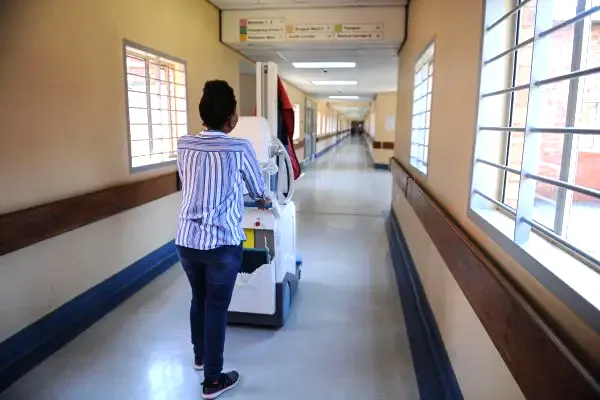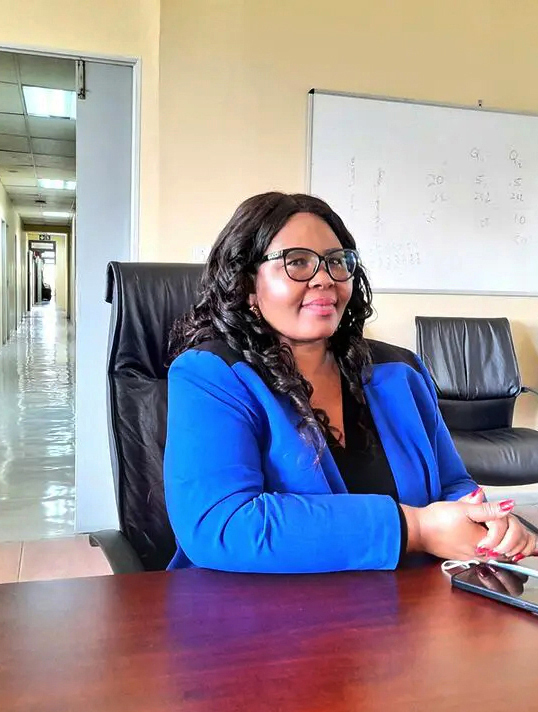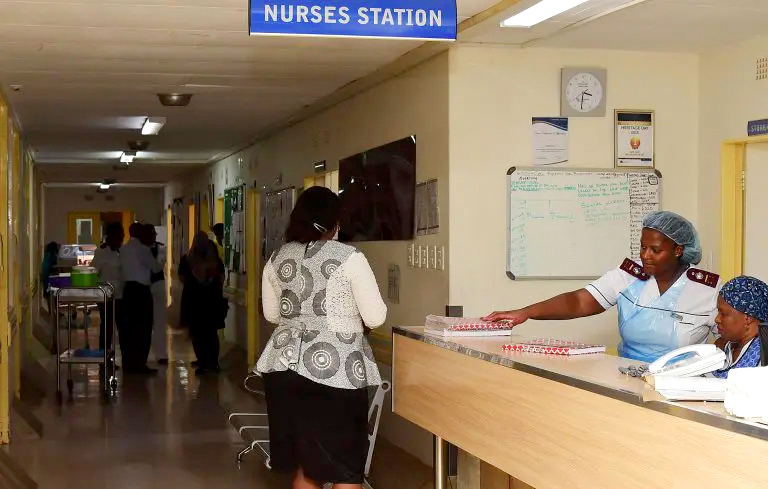SPOTLIGHT
Access to sufficient colostomy bags still hit-and-miss at Gauteng hospitals
Six months after Spotlight first reported on the plight of stoma patients experiencing shortages of colostomy and urostomy bags at Chris Hani Baragwanath Academic Hospital in Gauteng, users are still reporting shortages at that and other hospitals in the province.
At the time, the Gauteng health authorities said the shortages had been arrested.
Recently, however, complaints resurfaced as stoma patients in hospitals including Baragwanath, Helen Joseph and Leratong reported they are often not receiving the number of monthly supplies of colostomy bags they need. Added to this, activists say the number of nurses who can provide stoma care in public health facilities is wholly inadequate, with fewer than 100 in the country for both public- and private-sector patients.
In light of this and what Faizel Jacobs, an ostomate and one of the founding members of the South African Society of Ostomates (SASS), calls the “continued violation of the basic human rights of stoma patients”, the SASS now plans to lodge formal complaints with the Health Ombud in the Office of Health Standards Compliance and the South African Human Rights Commission.
Hard time coping
Jacobs says there are about 60,000 ostomates living with either a permanent or temporary stoma in the country – a figure he says is derived from the number of products being distributed in the ostomy community.

A colostomy pouch. (Photo: Remedios44, CC BY-SA 4.0 / wikimedia.org / Spotlight)
A stoma is an opening in the abdomen that can be connected to either your digestive or urinary system to allow waste (urine or faeces) to be diverted out of your body. It looks like a small, pinkish, circular piece of flesh that is sewn to your body. There are three main types of stomas – urostomy (urine), an ileostomy (from the small intestine), and a colostomy (from the large intestine). Reasons for getting a stoma range from cancer to Crohn’s disease, Jacobs explained in a Spotlight article.
According to a response by Gauteng health MEC Nomantu Nkomo-Ralehoko in the Gauteng legislature, there were 700 adult and 45 paediatric stoma patients by the end of 2022 receiving care at Chris Hani Baragwanath Hospital. The MEC was responding to questions from DA spokesperson for health in Gauteng, Jack Bloom. She also said there were about 390 stoma patients receiving treatment at Helen Joseph Hospital and about 90 monthly patients at Leratong Hospital.
One patient, who asked not to be named, told Spotlight last week he was admitted to Chris Hani Baragwanath in July 2022 for diabetes-related complications. He says he had no idea he would be discharged with a stoma and he and his family have a hard time coping with the current state of his health.
[Many] clinicians have no idea what a stoma is. They may [have a]broad sense of it… But they have no idea of the impact that it has on an individual’s life.
“Because of diabetes I had to have my leg amputated,” he says, adding that he was told that his stoma would only last six months after the procedure. In February, however, he says he was surprised to learn that he will be living with a permanent stoma.
He claims no one at the hospital taught him and his wife how to use the stoma pouch. He also says nurses always give him two pouches and tell them it will have to last a month.
“We don’t like the way Baragwanath is treating us,” his wife says. “No one in the house knows how to handle the stoma and now we even use ice block plastics to cover the stoma, because we don’t have bags.”
He says he doesn’t want to go back to the hospital, because every time he goes he has to fight to get his stoma pouches. “Without fighting, I wouldn’t even have those two bags.”
Read more in Daily Maverick: Living with a stoma in SA — we deserve better than the indignity our public healthcare affords
Another patient, Heather White, told Spotlight last week she went to Baragwanath on 27 March this year to collect her pouches but did not get any. While she had a plan for where she could get bags for herself, she thought it was better to find more donations to help other patients who were at Baragwanath on that day and who also did not get pouches.
“When I walked into the clinic I saw people sitting in the passage. When I went into the office where the nurses were sitting, they told me that there was no stock,” she says.

Chris Hani Baragwanath Academic Hospital. (Photo: Gallo Images / Fani Mahuntsi)
White managed to find donated pouches for some of the patients but there were not enough for everyone.
By the end of last week, however, when she went back, White says she still could not get the bags she needed.
According to Jacobs, most of the nurses are trying and are contacting suppliers for donations. “Nurses are breaking their backs while trying to help patients, but procurement [units] isn’t ordering.”
Jacobs says he also liaised with a few suppliers who confirmed that they had received RFQs (requests for information on price, delivery and other details), but none had been fulfilled. “Some hospitals have not had an order fulfilled at all during 2023. We are now in month four. Helen Joseph Hospital is one of them,” he says.
Patients previously told Spotlight that they had been told that hospitals are not ordering any stoma products because there wasn’t enough money in the budget for the year ending in March. So far, however, they have not reported any improvement since the start of the new financial year.
When Spotlight asked on Tuesday about the provincial department’s budget for goods and services and specifically the budget for procuring stoma products, Gauteng health spokesperson Motaletale Modiba said this information is not immediately available since the departmental budget votes are only tabled in May 2023.
No set protocols
Jacobs says fixing the challenges with stoma care is not that complicated. “We are such a small minority in the population and we’re actually being discriminated against. [Many] clinicians have no idea what a stoma is. They may [have a]broad sense of it – that it’s an opening and your body’s waste goes out there. But they have no idea of the impact that it has on an individual’s life,” he says.
Jacobs says that when a person is diagnosed with other illnesses such as cancer, HIV or TB there are protocols that are followed for how to administer treatment. However, according to him, this is not the case for many stoma patients in the public health sector.
When Bloom asked Nkomo-Ralehoko about the clinical guidelines for how many bags stoma patients are supposed to receive monthly, the health MEC’s response also showed that there seems to be no set protocol followed by hospitals. For example, in Baragwanath, the clinical guideline is to issue patients with at least 10 stoma pouches per month. In other hospitals such as George Mukhari, however, they just indicated pouches are issued “according to every patient’s need”. At Helen Joseph, the response shows they are “guided by procurement” and at Leratong there are no guidelines. At some district hospitals such as Bertha Gxowa, stoma patients only get two bags per month. In the response, the Bertha Gxowa District Hospital indicated it has no set guidelines since it does not have a stoma clinic or a nurse.
Acknowledging that stoma patients at times may not get the number of stoma products they need, Nkomo-Ralehoko’s response shows that at Baragwanath, for example, patients are issued fewer bags when contracted suppliers cannot deliver ordered stock. In such cases “patients are educated on how to prolong usage so that what is issued can last for the period”. Hospitals such as Helen Joseph, in the response, also cited procurement challenges and stockouts due to tenders not being awarded as reasons for the shortages.
Low stock of stoma products continuing
In 2022, according to the response, at least 13 Gauteng hospitals, including Chris Hani Baragwanath, had shortages of stoma pouches, which affected hundreds of patients.
According to Modiba, the standard practice is to issue 10 bags a month, “even though we know that one bag should last between four to five days to avoid skin irritation”. He says instead of supplying patients with 10 bags a month, some facilities give them between five bags for older patients and eight for new patients. “Obviously, this results in patients having to come back frequently to the hospital should they need to use more than the issued number per month,” says Modiba.
He says stoma patients are prioritised as part of the healing-from-home programme in therapeutic services. He says to ensure that they always come back for a review given the complications that are sometimes associated with living with a stoma, patients are often given the minimum required bags per month.
Read more in Daily Maverick: Patients paid price of suffering and indignity as colostomy bags ran out at Gauteng hospital
In response to Spotlight’s questions, Modiba confirmed on 6 April that Baragwanath currently has a “lower than usual” supply of colostomy and urostomy bags. In these cases, he says, patients are informed when Baragwanath is running low and awaiting stock and are counselled as well. “Because of the low or no stock in neighbouring facilities, we also supply referred patients. Patients are informed and encouraged to return to the hospital for more in case they have an urgent need.”

The shortage of stoma nurses and skills is compounding the challenges in stoma care in the public health sector. (Photo: Rosetta Msimango / Spotlight)
Referring to complaints at Helen Joseph and Leratong hospitals, Modiba previously told Spotlight: “Helen Joseph Hospital reported running low on stoma bags but a purchase order had been generated and delivery is expected before the end of the coming week (last week). Currently, each patient is given only five bags.”
When Spotlight asked on Tuesday if Helen Joseph Hospital had indeed received the delivery, Modiba did not immediately respond. According to Jacobs, however, SASS has received reports that patients are receiving supplies at Helen Joseph again.
The government gets the cheapest pouches to save money, but that doesn’t work and the one-size-fits-all is also an issue.
Meanwhile, Modiba in his earlier response on 6 April, disputed that Leratong Hospital too was having stoma stock challenges.
“Leratong does not have a challenge with colostomy bags. They are currently using a different bag from what the patients are used to. However, it serves the same purpose,” he told Spotlight at the time.
The department did not provide any names when asked which companies are supplying them with stoma products. “This category of patients have preferences,” says Modiba. “It is not always practical to stick to the bags from the same supplier. There are few suppliers in the market and fortunately all of them are credible.”
Compounding the problem: Shortage of stoma nurses
The shortage of stoma nurses and skills is compounding the challenges in stoma care in the public health sector. According to SASS figures, there is about one stoma nurse for every 600 stoma patients in both the public and private sectors.
A nurse who attended a stoma care training workshop last month told Spotlight: “We don’t have enough nurses who specialise in stoma care, and training should be provided. I am currently taking the course and other nurses should as well. Public hospitals lack qualified stoma nurses, so the private sector comes in to provide assistance.” The nurse asked to remain anonymous given that some of her comments are critical of the government.

Nomantu Nkomo-Ralehoko, MEC for health in Gauteng. (Photo: GP Health and Wellness / Twitter / Spotlight)
She says the pouches used by patients are customised to fit their stomas and are designed according to their skin type, so it is important that facilities give patients the right pouching systems that fit them. According to the nurse, since there is a shortage of pouches, hospitals are giving patients urine pouches, which she says is wrong and doesn’t help at all.
“Currently, the government gets the cheapest pouches to save money, but that doesn’t work and the one-size-fits-all is also an issue. It is important to give patients enough pouches for a month and also supporting products to avoid skin irritations.”
When Bloom asked what the department is doing to address these complaints about poor-quality stoma bags, the MEC’s response showed that at some hospitals such as Baragwanath when they “receive complaints about poor quality bags that do not stick well”, the hospital first determines if the bag is suitable for the patient and if they are applying it correctly and if not, patients are educated on applying the stoma bag. If all this is done and the problem persists, the complaint is raised with the supplier.
We have a plan
Modiba says the Gauteng health department plans to train specialist nurses, including stoma nurse specialists.
“There is currently on-the-job training of stoma nurses through the private sector manufacturers of the medical equipment/stoma bags,” he says.
According to him, there are currently only six stoma clinics in the province that provide stoma care, and the number of nurses trained in stoma care as short course or in-service training is nine.
“Those nurses are at the following hospitals: Dr George Mukhari Academic Hospital with one nurse, Charlotte Maxeke Johannesburg Academic Hospital with two nurses, Chris Hani Baragwanath Academic Hospital with five, and Kalafong Hospital with one. Helen Joseph and Steve Biko hospitals do not have nurses trained in this area, says Modiba.

According to figures from the SA Society for Ostomates, there is about one stoma nurse for every 600 stoma patients in both the public and private sectors. (Photo: Denvor de Wee / Spotlight)
Modiba says the department is now capacitating the Gauteng College of Nursing and is ensuring that all Nurse Education Institutions have the necessary capacity to train all specialist nurses at NQF level 8. This, according to him, means that lecturers at NQF levels 9 and 10 must be developed and training begin. “This institutional capacity development work is what the department will now be working on,” he says.
While nurses who specialise in stoma care often choose the private sector, he says the provincial health department is working on a plan to retain nurses working in stoma care in public health facilities. “The programme on specialist training of nurses will have to be enabled by the review of the OSD (occupation-specific dispensation) to remunerate nurse educators and other specialist nurse categories to be at a level higher than they are now to attract and retain them where they are needed,” Modiba says. “This review of the OSD and other HR retention instruments will be done in the 2023-2024 financial year.” DM/MC
This article was published by Spotlight – health journalism in the public interest.




















Comments - Please login in order to comment.